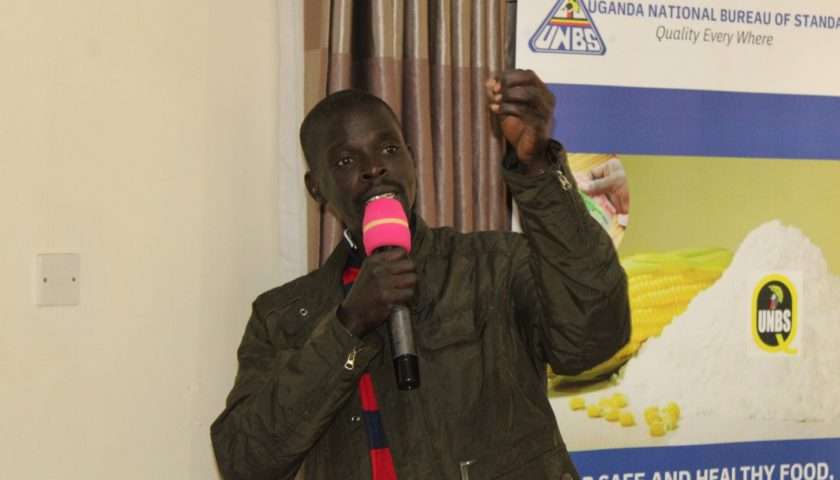Gulu: In a bid to ensure food safety and quality for both human consumption and market, the Uganda National Bureau of Standards (UNBS) has admonished locals and school heads to embrace foods and commodity testing and certifications.
UNBS, last week in Gulu, engaged institutions involved in the food-chain circulation including school heads, farmers, food processors, district commercial officers, agro-based farm producers on how they can handle their food stuff right from the time of harvesting to final consumption.
Food Safety and Quality
Patricia Bageine Ejalu, the UNBS Deputy Executive Director said that food products produced at local levels still lack the minimum requirement for ‘food safety” which calls for improvement right from harvesting, storage, preparation, handling, to consumption.
Ejalu who was quick to cite examples, said that majority of Ugandans are eating toxic metals from mills graining local seeds and grains.
“Part of our assessment is how you are handling metal bolt nuts and piles. Remember all these go through machines. People are required to have sieves, magnets to help deal with those impurities,” Ejalu said.
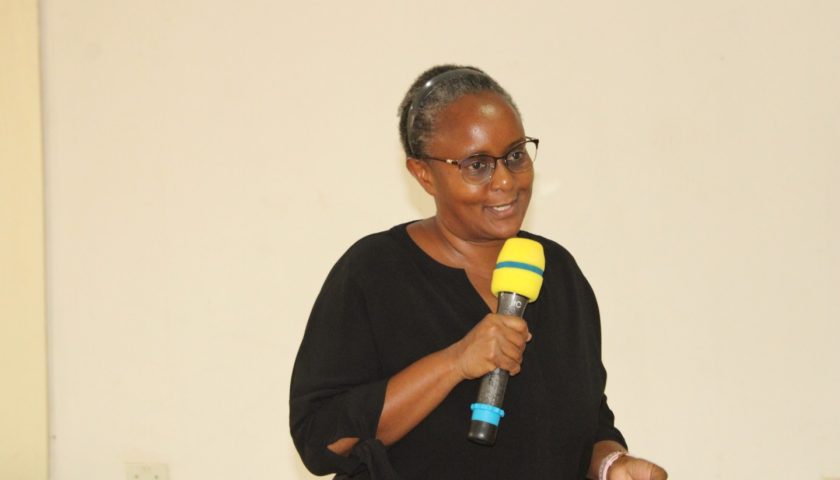
She called on institutions and all local government leaders at district levels to work with UNBS regional offices to achieve the certification in a bid to ensure that their food stuff have passed the test before they are displayed for consumption and sale.
Ejalu noted that low quality is one of the reasons for continued food poisoning and poor markets.
School Heads, Institutions Embracement
Gladys Aber, a Teacher from Gulu Army Secondary School welcomed the training saying it is beneficial to manage food mishandling in schools.
Aber however, said that they serve food to up to a total 1,680 students and at times they are overwhelmed with the people that pose threats and fears to food.
She asked UNBS to help them come up with ideas of securing specific machines or innovations that they could use to detect poison in foods before serving.
Francis Okot, an Administrator from Feed the Children, a Community Based Organization (CBO) dealing in providing affordable meal to children, there is a paradox on the types of food origins in this error including the existence of Genetically Modified Organisms (GMOs) versus the traditional foods that requires different handling skills.
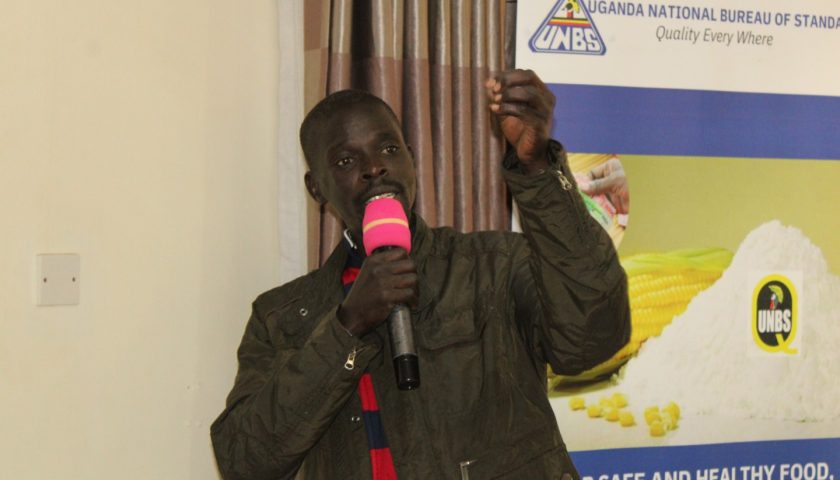
Okot said that there is a problem where foods with GMOs origins require special care and handling than the traditional ones.
He suggested increased capacity to farmers and those involved in the food chain so that they can have the equipment, money and the human resource to improve food quality.
Joyce Santa Laker, a farmer and business woman involved in food stuff production expresses concern over the increased use of modern machinery without knowing the repercussions on human health.
Laker called upon UNBS to explore the machines and equipment used in food production so that they are safe for consumption at the time of packaging citing the example of using grinding mills.
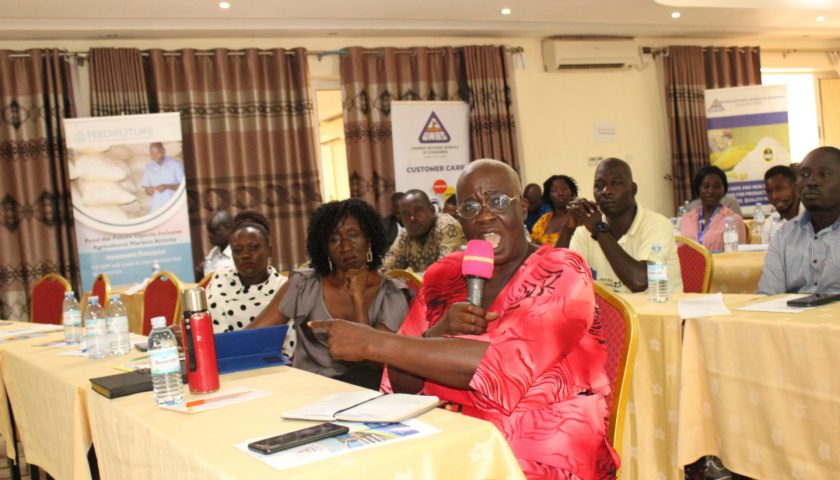
She however, challenged her fellow business counterparts to improve the quality of their products and embrace certification but begged the board to consider revising the huge costs on certification.
Milly Grace Oryem, the Head teacher of Wii-Aworanga Primary School in Gulu City said that there is need to engage all school heads on food safety so that they can know what kind of food they can serve their students taking aspects of; safety, the diet/nutritional value, and costs.
Oryem explained that such knowledge shall help school heads plan well on how they can feed their children while at school with emphasis on quality but on a minimal budget.
Alfred Lutwa, the Gulu district Inspector of Schools also called upon schools in Gulu District to embrace standardization of the food cooked to the students in both private and government aided schools equally.
Lutwa elaborated that the schools can achieve that by working together with the local government to inspect the schools to ascertain the facilities required to have safe food preparation in an effort to control instances of food poisoning.
He however, asked UNBS to take such training to schools.
“On behalf of the education department, we call upon UNBS to come to the schools and engage teachers and school heads on how they can achieve food safety,” Lutwa said.
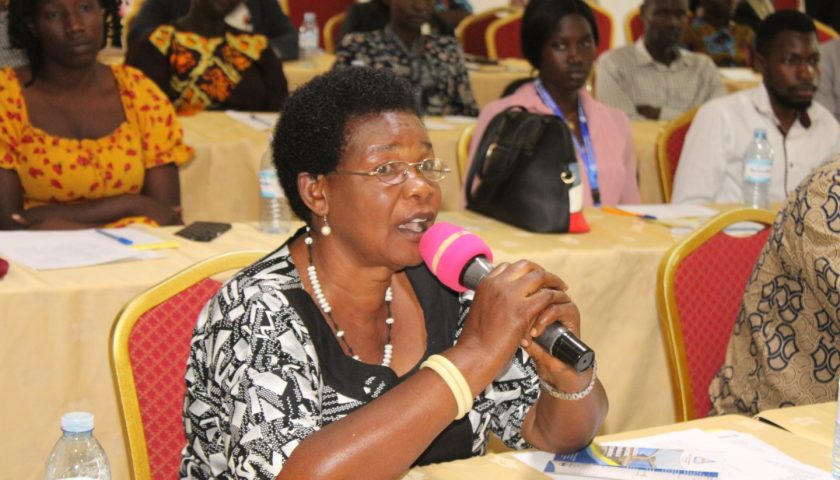
Lutwa added that, not every school head can converge to the training at conferences as the latter, especially if they are in the rural areas.
The engagement however, comes as a whistle blowing to schools and institutions as a way to avert ‘food poisoning’, following a recent poisoning incident in one of the schools in Mukono district that affected several students.
